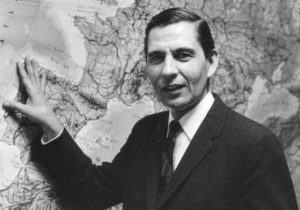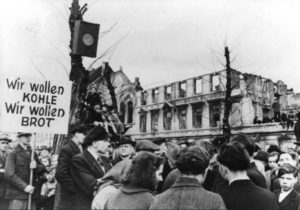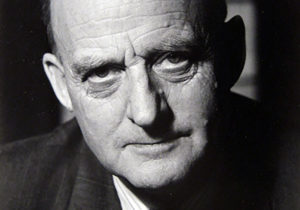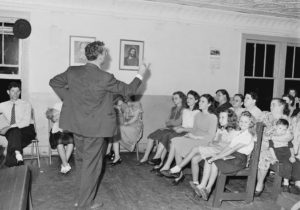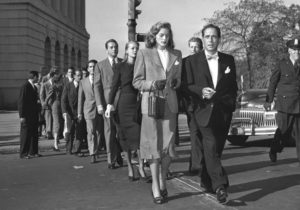Graebner the Great on America’s Power
When in 1967 the University of Virginia recruited Professor Norman A. Graebner from the University of Illinois to teach diplomatic history, a huge row ensued.
Robert MorrisonJune 23, 2022
Christian Realism and Enlightened Self-Interest as the Marshall Plan Emerged
The economic aid which is required could not be a matter of pure generosity. Nations as nations are incapable of such generosity.
Christianity & Crisis Magazine & Reinhold NiebuhrJune 17, 2022
Post-War Munich and American Housing Requisitions: A Christian Realist Plea
“The people of Munich were informed by proclamation of the city administration that the requisition of private homes for army housing was to be carried through, and to a greater extent than had been hitherto feared.”
Christianity & Crisis MagazineJune 13, 2022
Five Impressions on Niebuhr and Co., 1945–47
From 1945 to 1947 as the United States and Soviet Union moved toward the Cold War, Christian realists writing for Reinhold Niebuhr’s journal, Christianity and Crisis, responded to global dilemmas. Here are five impressions of those articles, along with lessons for today.
Mark MeltonJune 10, 2022
Is It Time to Preach Optimism?
Recognizing the place for a genuine religious hope born of faith and for an enthusiasm for realization of social and ethical gains in any historical situation, Christianity will nevertheless, when true to itself, set its face against utopianism or popular brands of optimism.
Christianity & Crisis MagazineMay 24, 2022
The Mad Pacifism of Doctor Who
The BBC should bring back the skepticism of pacifism that Doctor Who used to have.
Mark MeltonMay 23, 2022
Niebuhr’s Report from Switzerland, 1947
At the end of Reinhold Niebuhr’s travels across Western Europe in 1947, he spent a week at the Ecumenical Institute, a facility near Geneva. He was hopeful of how this project would bless the church life of the world, and he offered observations about discussions there about communism, church-state relations, Christian political parties, and more.
Christianity & Crisis Magazine & Reinhold NiebuhrMay 18, 2022
The West Should Remember Cold War-Just War Lessons of Nuclear Deterrence
In our day it is difficult for some, perhaps many, to recall that the West’s Cold War policy of nuclear deterrence—anchored in traditional just war moral principles of just cause, right intention, proportionality, and discrimination—helped avert war rather than increase the prospects of nuclear conflagration.
J. Daryl CharlesMay 17, 2022
Free Speech and Healthy Politics
Now what is here symbolized has been the most fundamental idea in our American democracy. Ours is a government by discussion.
Christianity & Crisis MagazineMay 12, 2022
